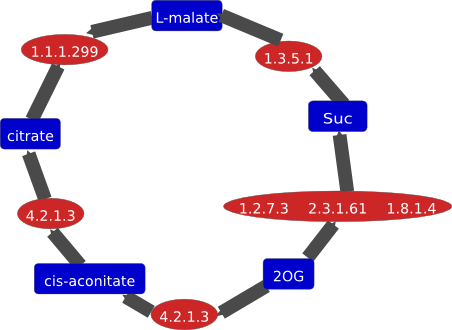EC Number   |
General Information   |
Reference   |
|---|
   2.5.1.112 2.5.1.112 | malfunction |
the ipt1357 quadruple mutant possesses severely decreased levels of isopentenyladenine and trans-zeatin , and their corresponding ribosides, ribotides, and glucosides, and is retarded in its growth. In contrast, these mutants possess increased levels of cis-zeatin-type cytokinins |
676830 |
   2.5.1.112 2.5.1.112 | metabolism |
the enzyme isoforms are responsible for the bulk of isopentenyladenine- and trans-zeatin-type cytokinin synthesis |
676830 |
   2.5.1.112 2.5.1.112 | metabolism |
the isopentenyltransferase reaction is the key rate-limiting step in cytokinin biosynthesis |
722266 |
   2.5.1.112 2.5.1.112 | physiological function |
enzyme genes in nodal stems are key genes for cytokinin biosynthesis, as they promote the outgrowth of axillary buds |
759943 |
   2.5.1.112 2.5.1.112 | physiological function |
interference of auxin distribution disrupts the cytokinin response and ATP/ADP isopentenyltransferase IPT5 expression, affecting stem cell initiation and meristem formation. Auxin response factor ARF3 mediates the auxin response during de novo organ regeneration. Mutations in ARF3 cause ectopic cytokinin biosynthesis via the misexpression of IPT5, and this disrupts organ regeneration. ARF3 directly binds to the promoter of IPT5 and negatively regulates IPT5 expression |
739343 |
   2.5.1.112 2.5.1.112 | physiological function |
isoform IPT5 in seed is the key gene for cytokinin biosynthesis during early fruit development. Isoform IPT3 is the primary nitrate-response gene in peach roots |
759664 |
   2.5.1.112 2.5.1.112 | physiological function |
the enzyme is expressed during kernel development |
689564 |





